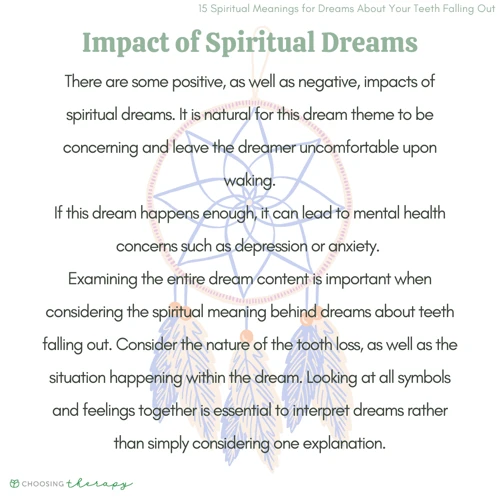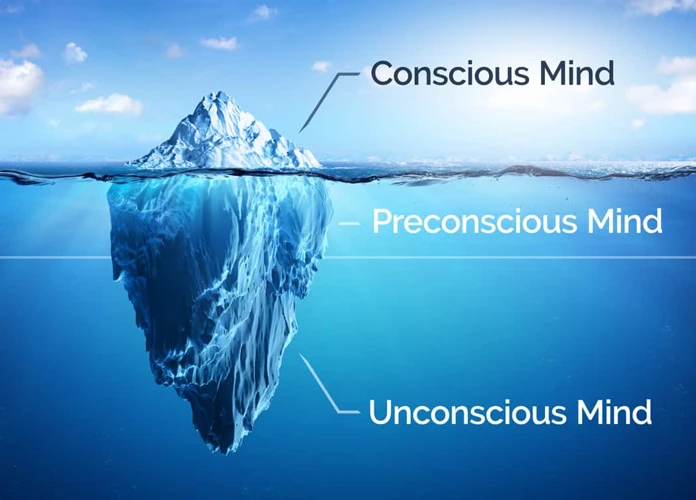Unlocking the Subconscious: Understanding Dreams About Abuse
Dreams have long captivated the human mind, taking us on mysterious journeys into the depths of our subconscious. Ancient cultures believed dreams held profound meanings and messages from a higher power. Even in modern times, dreams continue to fascinate researchers and psychologists. One particularly intriguing aspect of dreaming is their connection to past experiences, including trauma and abuse. Through the seemingly cryptic language of dreams, our unconscious mind often tries to communicate and process these painful events. In this article, we will embark on an exploration of dreams about abuse, delving into their significance, the symbolism they hold, and how to interpret and heal from them. So, put on your dream interpreter’s hat, and let’s unlock the secrets of the subconscious mind.
The Significance of Dreams

Dreams serve as windows into our subconscious, allowing us to glimpse a hidden realm of thoughts, emotions, and memories. They possess a significance that goes beyond mere random sequences of images and events. 1. Unveiling the Unconscious Mind: Dreams provide a unique opportunity to gain insight into our deeper selves. They offer access to emotions, desires, and fears that may be suppressed or overlooked in our waking lives. Through dreams, we can tap into the depths of our unconscious mind and explore the complexities of our inner world. 2. The Power of Symbols: Dreams communicate not through explicit narratives, but through symbolism. They use symbols and metaphors to convey messages and represent various aspects of our lives. Interpretation of these symbols can unlock hidden meanings and shed light on our emotional states and unresolved issues. Whether it’s a locked door, a broken mirror, or a fleeing figure, symbols in dreams offer clues to understanding our subconscious struggles.
1. Unveiling the Unconscious Mind
- Access to suppressed emotions: Dreams provide a platform for exploring emotions that may be repressed or ignored in our waking lives. They offer a safe space where our unconscious mind can express and process these hidden feelings.
- Deep self-reflection: By analyzing our dreams, we can gain valuable insights into our true selves. Dreams reveal our desires, fears, and motivations, allowing us to explore aspects of our personality that may be obscured during our waking hours.
- Unconscious problem-solving: Our dreams often present solutions to problems that we may be grappling with in our waking lives. When we surrender control to our unconscious mind, it can offer creative and innovative solutions that we may not have considered before.
- Connection to past experiences: Dreams can bring forth memories and experiences from the past, some of which may be deeply buried. They allow us to revisit these events and process any unresolved emotions or traumas associated with them.
2. The Power of Symbols
Symbols play a pivotal role in the language of dreams, acting as a key to unlock their meaning. These symbolic representations are often deeply personal and influenced by our individual experiences and cultural background. In dreams about abuse, symbols can represent different aspects of the trauma, such as a locked door symbolizing a sense of confinement or powerlessness, or a dark shadow embodying fear and danger. Analyzing and interpreting these symbols can provide valuable insights into our subconscious mind, helping us to uncover hidden emotions and unresolved issues related to past abuse. The power of symbols lies in their ability to bridge the gap between the conscious and unconscious mind, bringing to light the profound messages and emotions that are embedded within our dreams.
Exploring Dreams About Abuse

Dreams about abuse tap into profound emotional and psychological territory, presenting an opportunity for introspection and healing. 1. Types of Abuse Dreams: Dreams about abuse can take different forms, representing various aspects of the traumatic experience. They may involve vivid reenactments of the abuse, feelings of powerlessness, or attempts to escape the abusive situation. Each dream is unique, reflecting the individual’s personal context and emotional response to the trauma. 2. Common Symbols in Abuse Dreams: Symbolism plays a crucial role in abuse dreams, manifesting as metaphors for the traumatic experiences endured. These symbols can include locked cages, dark shadows, broken chains, or haunting images of the abuser. Interpreting these symbols can uncover hidden emotions and provide insights into the impact of the abuse on the dreamer’s psyche. 3. Emotional Impact of Abuse Dreams: Dreams about abuse evoke intense emotional responses, often causing fear, anger, sadness, or confusion upon waking. These dreams serve as a reflection of the lingering effects of the trauma and can serve as a catalyst for further healing and understanding. By exploring the depths of these dreams, individuals can begin to process their emotions and work towards healing and recovery.
1. Types of Abuse Dreams
- Recurring Trauma: Some individuals may experience recurring abuse dreams, where they relive past traumatic events in their sleep. These dreams can be distressing and may indicate lingering trauma that needs to be addressed.
- Situational Abuse: Situational abuse dreams involve scenarios where the dreamer finds themselves in abusive situations or witnessing abuse happening to someone else. These dreams may reflect the fear of being in similar circumstances or the empathetic response to others’ experiences.
- Symbolic Representation: Abuse dreams can also manifest symbolically, using imagery and metaphors to represent feelings of powerlessness, vulnerability, or violation. These dreams may not directly depict abuse but carry underlying themes related to an individual’s experiences or emotions.
2. Common Symbols in Abuse Dreams
2. Common Symbols in Abuse Dreams: Abuse dreams often contain recurring symbols that can provide insight into the traumatic experiences being processed. One common symbol is being chased or pursued, representing the feeling of being unable to escape from the trauma. Another symbol is being trapped or imprisoned, symbolizing a sense of helplessness and confinement. Other symbols may include broken objects or shattered mirrors, reflecting the damaged sense of self caused by abuse. These symbols serve as powerful imagery in abuse dreams, inviting deep exploration and understanding of the emotional wounds that need healing.
3. Emotional Impact of Abuse Dreams
While dreams about abuse can vary in content and intensity, they often come with a powerful emotional impact. Understanding the emotions associated with these dreams is crucial in processing and healing from the trauma they may represent. Here are some key points regarding the emotional impact of abuse dreams:
- Overwhelming Fear and Anxiety: Abuse dreams can elicit intense feelings of fear, anxiety, and helplessness. The vividness of these dreams may cause a surge of emotions that linger upon waking.
- Guilt and Shame: Survivors of abuse often experience feelings of guilt and shame, and these emotions can be heightened in abuse dreams. These dreams may evoke self-blame or a sense of worthlessness.
- Flashbacks and Triggers: Abuse dreams can trigger flashbacks to past traumatic events, intensifying the emotional response. Certain elements or situations within the dream may serve as triggers for emotional distress.
- Relief or Empowerment: While most abuse dreams evoke negative emotions, some individuals may also experience moments of relief or empowering emotions within these dreams. These positive emotions may symbolize the healing process or a sense of taking control.
Understanding the emotional impact of abuse dreams is the first step towards addressing and processing the trauma they represent. It is vital to approach these dreams with compassion and seek appropriate support and guidance in navigating the healing journey.
Interpreting Abuse Dreams

When it comes to interpreting dreams about abuse, a delicate and nuanced approach is crucial to unraveling the symbolism and meaning embedded within. 1. Understanding Personal Context: Each individual’s experiences and personal history play a significant role in the interpretation of their abuse dreams. Consider your own unique background, relationships, and past traumas to gain a deeper understanding of the dream’s possible connections to your life. 2. Analyzing Symbolism and Imagery: Abuse dreams often contain symbolic elements that require careful analysis. Keep a dream journal to track recurring symbols or themes in your dreams, and explore their potential associations with past experiences or unresolved feelings. 3. Seeking Professional Help: If you find it challenging to interpret or cope with your abuse dreams, consider reaching out to a therapist or counselor who specializes in dream analysis. Professional guidance can provide valuable insights and support as you navigate the complexities of your dreams and their connection to your healing journey.
1. Understanding Personal Context
Understanding the personal context is crucial when interpreting dreams about abuse. It involves examining one’s individual experiences, traumas, and emotions to gain insight into the subconscious messages conveyed in the dreams. Every person’s journey and history are unique, and this uniqueness shapes the symbolism and meaning of their dreams. By reflecting on personal context, such as past abusive experiences, relationships, and current emotional state, individuals can begin to unravel the hidden messages within their dreams. It is important to approach this process with empathy and self-awareness, allowing for a deeper understanding of oneself and the impact of abuse on the subconscious mind.
2. Analyzing Symbolism and Imagery
2. Analyzing Symbolism and Imagery: When interpreting dreams about abuse, it’s crucial to delve into the symbolism and imagery present in the dream. Symbols in dreams are deeply personal and can vary from person to person, so it’s important to consider the individual’s unique experiences and associations. Analyzing the symbols and imagery can help uncover hidden meanings and connections to past trauma. For example, a recurring image of a locked cage may represent a feeling of being trapped or constrained in an abusive situation. By meticulously examining the symbols and imagery, one can gain insights into the underlying emotions and experiences that the dream is attempting to convey.
3. Seeking Professional Help
Seeking professional help can be incredibly beneficial when it comes to understanding and processing dreams about abuse. Here are a few reasons why it may be a good idea to consult with a professional in this field:
| 1. Expertise and Experience: | A professional therapist or counselor specializing in dream analysis and trauma can provide valuable expertise and guidance. They have the training and experience to help you navigate the complexities of abuse dreams and their emotional impact. |
| 2. Safe and Non-Judgmental Space: | Discussing dreams about abuse can be deeply personal and sensitive. Seeking professional help ensures that you have a safe and non-judgmental space to explore your dreams, share your experiences, and work through any related emotional distress. |
| 3. Holistic Approach: | A professional can provide a holistic approach to help you heal and move forward. They may combine dream analysis techniques with other therapeutic interventions, such as trauma-focused therapy or cognitive-behavioral techniques, to address and process the underlying trauma and its impact on your well-being. |
| 4. Validation and Support: | Validation is a crucial aspect of the healing process. A professional can validate your experiences, providing the reassurance and support needed to validate the emotions and memories associated with your dreams. |
| 5. Tailored Guidance: | Every individual’s healing journey is unique. A professional can provide personalized guidance and strategies that are tailored to your specific needs and circumstances, helping you navigate the interpretation and emotional impact of your abuse dreams. |
Healing and Moving Forward

Healing from trauma and moving forward after experiencing abuse is a complex and deeply personal journey. 1. Processing Trauma: Dreams about abuse can be a manifestation of unresolved trauma, and it is crucial to acknowledge and address these experiences. To begin the healing process, it is essential to create a safe space where emotions can be processed and understood. This might involve talking to a therapist, participating in support groups, or engaging in self-reflection. Processing trauma allows for the gradual release of the emotional burden carried from past experiences. 2. Therapy and Self-Care: Seeking professional help through therapy can be immensely beneficial for survivors of abuse. Therapists provide a supportive environment to explore emotions, develop coping mechanisms, and work towards healing. Additionally, practicing self-care is crucial for nurturing oneself and rebuilding a sense of self-worth. This might involve engaging in activities that bring joy and relaxation, focusing on physical and emotional well-being, and cultivating healthy relationships and boundaries. Healing and moving forward after abuse is a journey that requires patience, self-compassion, and the understanding that each person’s path is unique.
1. Processing Trauma
Processing trauma is an essential step in healing from abuse-related dreams. Traumatic experiences can leave deep emotional wounds that continue to impact our lives, even when we are unaware of their presence. 1. Processing Trauma: Recognizing and acknowledging the trauma that underlies abuse dreams is crucial. It involves confronting and facing the emotions associated with the experience, allowing them to be felt and expressed. Seeking support from loved ones or a therapist can provide a safe space to work through the pain and begin the healing process. Engaging in self-care practices such as journaling, meditation, and engaging in activities that bring joy can also aid in the processing of trauma. It is important to remember that healing takes time and patience, and everyone’s journey is unique.
2. Therapy and Self-Care
2. Therapy and Self-Care
When dealing with dreams about abuse, it is essential to prioritize healing and self-care. Seeking therapy can be highly beneficial, as trained professionals can provide guidance and support in processing trauma. Therapists can help explore the underlying emotions and meanings behind abusive dreams, offering tools and techniques to cope with them effectively. Additionally, therapy can aid in addressing any unresolved issues related to abuse, promoting healing and personal growth. Alongside therapy, practicing self-care is crucial. Engaging in activities that promote relaxation, self-compassion, and emotional well-being can help navigate the emotional impact of abuse dreams. Self-care practices such as meditation, journaling, exercise, and spending time with loved ones can contribute to overall healing and resilience. Remember, taking care of oneself is a vital step towards healing and moving forward.
Conclusion
Conclusion
– Dreams about abuse can be intense and unsettling experiences, but they hold valuable insights into our subconscious mind.
– Understanding the significance of dreams and the power of symbolism allows us to interpret and make sense of these dreams.
– Analyzing personal context and seeking professional help can further aid in the interpretation and healing process.
– Healing from abuse dreams involves processing trauma and engaging in therapy and self-care.
– By unlocking the secrets hidden within our dreams, we can gain a deeper understanding of ourselves and move forward on a path of healing and growth.
Frequently Asked Questions
1. What is the purpose of dreaming?
Dreams serve several purposes, including processing emotions, consolidating memories, problem-solving, and tapping into the subconscious mind.
2. Why do we dream about past traumas or abuse?
Dreams about past traumas or abuse occur as a way for our mind to process and make sense of these experiences, helping us heal and find resolution.
3. Can dreams about abuse be literal or must they be symbolic?
Dreams about abuse can be both literal and symbolic. They may directly represent past events or use symbolic imagery to convey underlying emotions and unresolved issues.
4. Are there different types of abuse dreams?
Yes, there are various types of abuse dreams, including nightmares, flashbacks, recurring dreams, and symbolic dreams that represent the emotional impact of abuse.
5. How do abuse dreams affect our emotions?
Abuse dreams can evoke intense emotions such as fear, anger, sadness, and helplessness. These dreams can trigger emotional responses similar to those experienced during the actual abuse.
6. Do abuse dreams always indicate a history of abuse?
No, abuse dreams do not always indicate a history of abuse. Sometimes, they may symbolize other forms of emotional or psychological distress unrelated to personal experiences.
7. Can abuse dreams provide insights into unresolved trauma?
Yes, abuse dreams can provide valuable insights into unresolved trauma, allowing individuals to explore and process their experiences in a safe and symbolic way.
8. How can I interpret the symbols in my abuse dreams?
Interpretation of symbols in abuse dreams requires personal reflection and exploration of their meaning in your life. Symbols can have universal meanings, but their significance ultimately depends on personal associations and context.
9. When should I seek professional help for abuse dreams?
If abuse dreams cause significant distress, interfere with daily functioning, or trigger trauma responses, it may be beneficial to seek professional help from a therapist experienced in trauma and dream analysis.
10. Can healing from abuse dreams lead to overall healing from past traumas?
Yes, healing from abuse dreams can contribute to overall healing from past traumas. By addressing and understanding the messages within these dreams, individuals can work towards resolution, acceptance, and emotional well-being.








